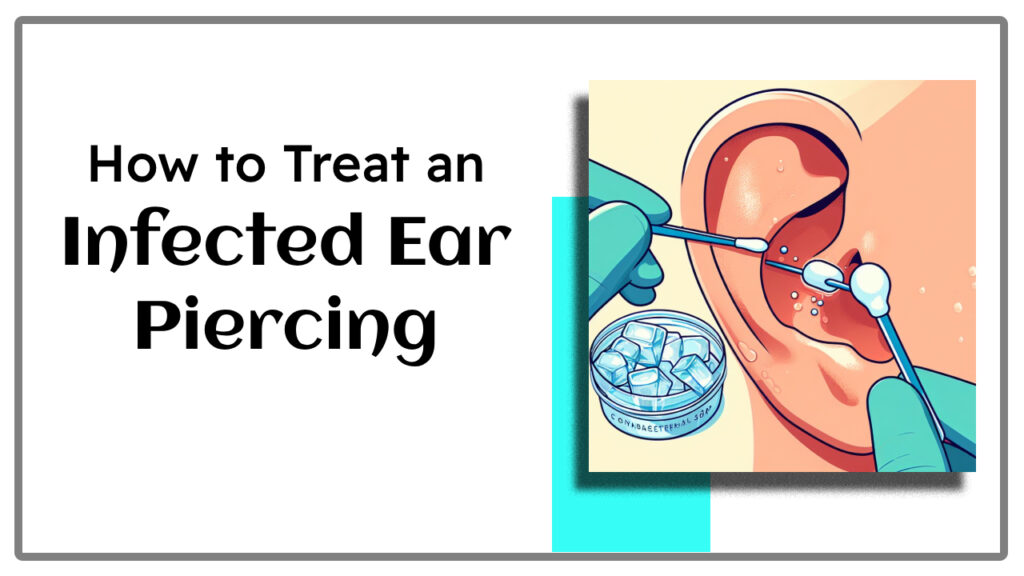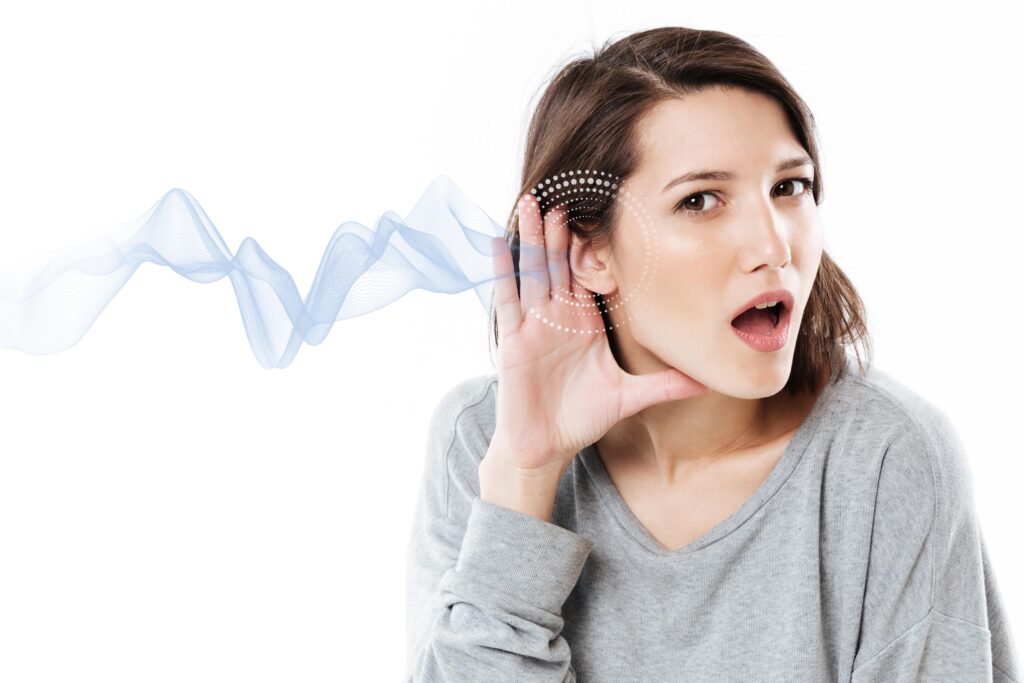Pierced ears are a stylish and timeless way to express your individuality. However, the journey to well-healed ear piercings comes with its own set of challenges, including the potential for ear piercing infections. While earlobe piercings tend to heal relatively quickly thanks to ample blood flow, cartilage piercings require more patience and meticulous care. This guide equips you with vital knowledge on recognizing, preventing, and treating ear piercing infections, ensuring your style journey remains safe and enjoyable.
What Is an Infected Ear Piercing?
An infected ear piercing is a localized bacterial or microbial invasion within or around the pierced area. It typically occurs due to unsanitary practices, inadequate aftercare, or the use of unsterilized equipment.
What Does an Infected Ear Piercing Look Like?
Early recognition is essential for effective treatment. An infected ear piercing typically exhibits several common signs:
- Redness and Inflammation: The area around the piercing becomes red and swollen.
- Pain and Discomfort: Increased tenderness or discomfort at the piercing site.
- Fever: A noticeable rise in body temperature.
- Discharge: Fluid may ooze from the piercing.
- Swelling: The affected area swells, and the texture may change.
Causes Behind Ear Piercing Infections
Before embarking on the journey of managing an infected ear piercing, it’s crucial to understand the factors that contribute to these unwelcome occurrences. Ear piercings, essentially open wounds, are vulnerable to bacterial invasions. However, bacteria are not the sole culprits; our daily habits and the environment can also play a significant role.
Here are some common causes behind ear piercing infections:
- Improper Piercing Techniques: Unsanitary or non-sterile piercing equipment and techniques can introduce bacteria into the piercing site.
- Touching or Tugging the Piercing: Frequent touching or pulling the piercing can irritate the area, increasing the risk of infection.
- Sleeping on the Piercing: Pressure from sleeping on the piercing can cause discomfort and inflammation, creating an ideal environment for bacteria to thrive.
- Harsh Chemicals: Exposing the piercing to harsh chemicals, such as shampoos, soaps, or perfumes, can lead to irritation and infection.
Identifying the Signs of an Infected Ear Piercing
Promptly recognizing an infected ear piercing is essential for timely intervention and effective treatment. Common symptoms include:
- Redness and Inflammation: The area surrounding the piercing appears red, swollen, and inflamed.
- Pain and Tenderness: Discomfort or tenderness at the piercing site is a common symptom.
- Fever: An elevated body temperature can indicate an infection.
- Discharge: Fluid oozing from the ear piercing, often yellow or green in color.
- Swelling: The affected area becomes noticeably swollen.
- Softening of the Pierced Area: A change in the texture of the pierced area, becoming soft and spongy.
While some of these symptoms may resemble the natural healing process, persistent discomfort or the emergence of multiple symptoms warrants professional consultation.
How Can I Prevent a pierced Ear Infection?
Prevention is the key to enjoying your newly pierced ears without the discomfort of an infection. The following tips can help you minimize the risk of an ear piercing infection:
- Choose a Reputable Piercer: Select an experienced and professional piercer who follows strict hygiene practices.
- Aftercare is Vital: Adhere to the aftercare instructions provided by your piercer. This typically includes cleaning your piercings with a saline solution or antibacterial product.
- Hands Off: Avoid touching your piercings with dirty hands. Always wash your hands thoroughly before handling them.
- Keep Earrings In: For the first several weeks, avoid removing your earrings to prevent the piercing hole from closing.
- Avoid Swimming in Open Water: Steer clear of pools, lakes, and similar open water until your piercings have healed to prevent contamination.
What Are the Risk Factors for Ear Piercing Infections?
Understanding the risk factors for ear piercing infections can help you assess your personal situation and make informed decisions. Risk factors include:
- Unsanitary Practices: Touching your piercing with unwashed hands can introduce bacteria.
- Unsterilized Equipment: Getting pierced with improperly sterilized equipment or in unhygienic conditions can increase infection risk.
Home Care for Ear Piercing Infections
In most cases of mild ear piercing infections, proactive home care can effectively resolve the issue without the need for medical intervention. Here’s a detailed guide to managing an infected ear piercing at home:
Essential Steps for Home Care
- Hand Hygiene: Always wash your hands thoroughly with soap and water before handling the ear piercing.
- Cleansing Solution: Prepare a saline solution by mixing 1/4 teaspoon of non-iodized sea salt into a cup of warm water.
- Cleansing Technique: Using a clean cotton ball or gauze pad, gently soak it in the saline solution and apply it to the ear piercing.
- Drying: Pat the pierced area dry with a clean tissue or cotton ball.
- Antibacterial Ointment: Apply a small amount of antibacterial ointment or cream to the affected site.
- Earring Maintenance: For adults, avoid removing earrings for at least the first 6 weeks to prevent the piercing hole from closing. Gently twist your earrings or ear jewelry to prevent them from sticking.
Additional Home Care Tips
- Avoid touching or pulling the piercing.
- Cleanse the piercing twice a day, morning and night.
- Replace pillowcases regularly to prevent the spread of bacteria.
- Avoid sleeping on the pierced side of your ear.
- Avoid using harsh chemicals or soaps near the piercing.
- Keep hair away from the piercing to prevent entanglement and irritation.
Extra Steps for a Healthy Piercing
Here are some additional tips to ensure your piercing stays infection-free and heals beautifully:
- Maintain a Balanced Diet: A healthy diet rich in vitamins and minerals can support the body’s natural healing processes. Ensure you’re getting enough vitamin C, zinc, and protein to aid in tissue repair.
- Consider a Pillow with a Hole: To prevent direct pressure on your newly pierced ear while sleeping, you can use a specially designed pillow with a hole. This allows your ear to remain untouched and helps in avoiding discomfort or complications during the healing process.
- Minimize Sun Exposure: Excessive sun exposure can lead to skin irritation around your piercing. Protect your ears from direct sunlight or use a broad-brimmed hat when outdoors.
- Limit Exposure to Dust and Pollutants: Dust and air pollutants can settle on your ear piercings, potentially causing irritation or infection. When in a polluted environment, consider covering your ears with a clean cloth or bandana.
- Maintain General Hygiene: Good overall hygiene is essential. Regularly clean your hair, face, and neck areas to prevent the transfer of dirt and bacteria to your ear piercings.
- Stay Hydrated: Proper hydration helps your body function optimally, including the healing process. Drink enough water daily to support your immune system.
- Monitor Allergic Reactions: Pay attention to any signs of allergic reactions, such as itching, redness, or rashes around the piercing. If you suspect an allergy, consult a healthcare provider for guidance.
- Mild Pain Relievers: In some cases, over-the-counter pain relievers like ibuprofen may help reduce discomfort and inflammation around the piercing. Follow the recommended dosages and consult with a healthcare professional if needed.
- Rest and Sleep: A good night’s sleep and adequate rest contribute to the body’s overall well-being and its ability to heal. Ensure you get enough rest during the healing period.
Conclusion
In conclusion, while an infected ear piercing can be distressing, it’s a manageable condition with diligent care. Prevention remains crucial through hygiene, reputable piercers, and aftercare. If an infection occurs, timely recognition, proper cleansing, and professional help when necessary are your allies on the path to recovery. With patience and consistent care, your ear will soon return to its stylish self, and you can once again express your unique personality through your well-healed piercings.
- 10 Top Rated Best Pillows for Neck and Back Pain - December 29, 2023
- How to Treat an Infected Ear Piercing – Home Remedies - December 28, 2023
- The Ultimate Guide to the Boyfriend Pillow - June 24, 2023

